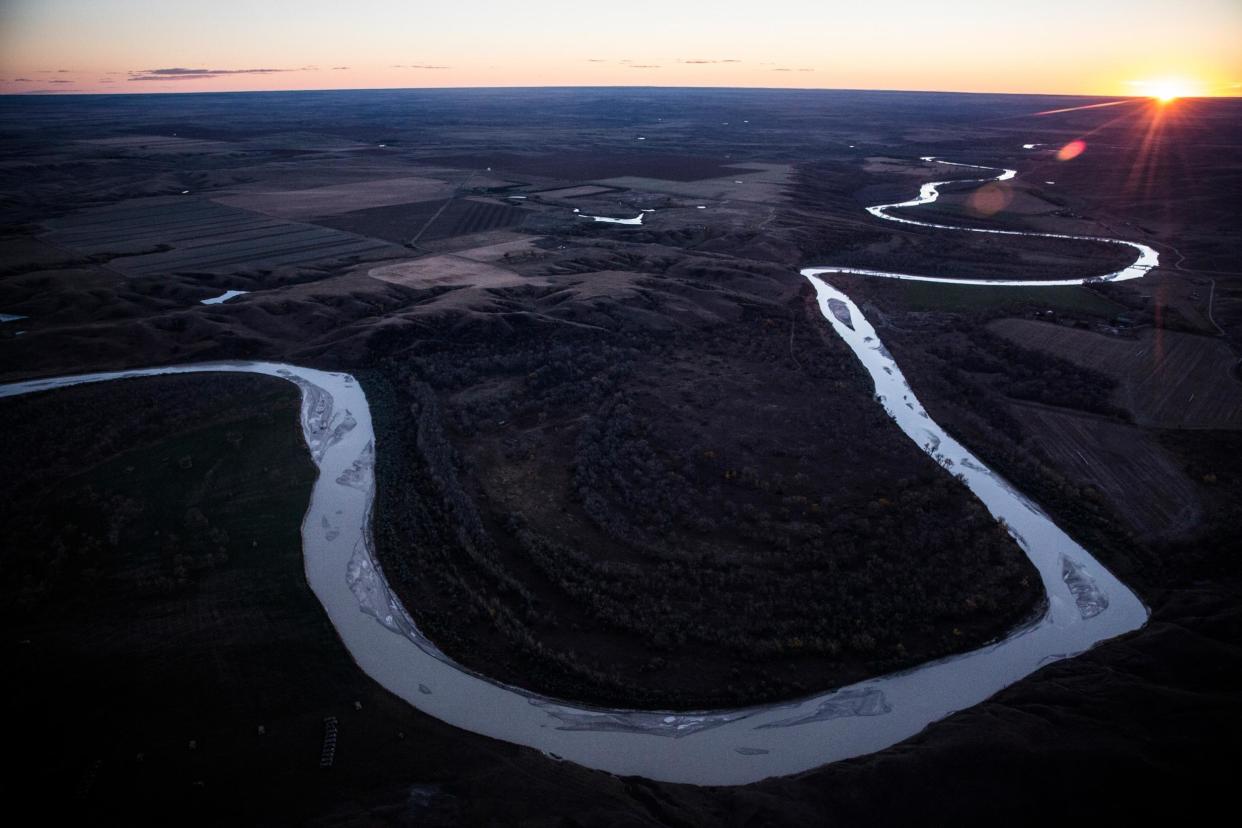Keystone Pipeline leaks 210,000 gallons of oil

The Keystone Pipeline has been temporarily shut down after it leaked more than 200,000 gallons of oil in South Dakota.
Crews shut down the controversial oil pipeline on Thursday morning. Officials are looking into the cause of the leak, which is the largest Keystone leak in South Dakota to date, according to a spokesman for the state's Department of Environment and Natural Resources.
TransCanda, the company that operates the pipeline, said it had leaked 5,000 barrels – or about 210,000 gallons – before it was shut down.
In a statement, the company said the leak was "completely isolated within 15 minutes and emergency response procedures were activated".
Protesters have resisted the extension of the pipeline, which is slated to stretch from Canada to Texas, for fear of just such a leak. The extension would link Canada’s Alberta oil sands to refineries in the US. Residents of states in the pipeline's path worried it could contaminate local water supplies and have other, longer-term environmental impacts.
The Nebraska Public Service Commission is set to announce next week whether they will allow the extension – known as the Keystone XL – to be routed through the state. The decision is seen as the last big, regulatory hurdle through which the extension must pass before it is constructed.
Opponents of the Keystone XL pipeline mobilised earlier this week to draw attention to the coming decision.
“We want to make sure our fellow Nebraskans know the decision is coming ... and how critical this decision is for property rights and clean water,” Jane Kleeb, the director of Volunteers for Bold Alliance, told Reuters.
Former President Barack Obama blocked the Keystone XL pipeline's construction in 2015, citing its possible environmental impacts. A 2014 State Department review found that the pipeline would not significantly increase greenhouse gas emissions, but environmentalists remained staunchly opposed to its construction – in a large part because of its potential for leaks.
"America is now a global leader when it comes to taking serious action to fight climate change, and frankly, approving this project would have undercut that leadership," Mr Obama said at the time.
But President Donald Trump greenlighted the project in March of this year, fulfilling one of his key campaign promises.
"It's a great day for jobs and energy independence," Mr Trump said from the Oval Office, shortly after issuing the permit. The State Department has estimated the project will create 42,100 jobs, the vast majority of which would be temporary.

 Yahoo News
Yahoo News 
